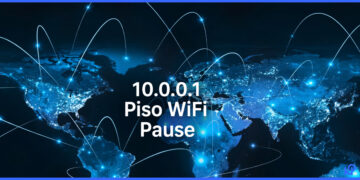Cybercriminals have long realized that attacking businesses is profitable – not everyone has funding for a dedicated IT team, but all enterprises have funding and customer data. Now that AI is on the rise, malicious actors are able to adapt their malware models to target hundreds of businesses at once. Unfortunately, small companies are the most vulnerable in that scenario.
But what is the reason for targeting smaller teams? And which attacks are the most common? Let’s dive deeper and answer all these questions.
Why Are Small Businesses in Danger?
Small businesses are targeted the most as they often don’t have enough to spend on cybersecurity. Some don’t even have an IT team — the owner or a team member manages everything from social media to customer communication. They do not conduct cybersecurity training or implement any software except for a basic antivirus, either. Sadly, that makes them an easy target for hackers.
As a result, they have to deal with costly recovery and long periods of personal data reclamation. Not all businesses overcome the damage – 60% of small businesses close in six months after being attacked.
If you are reading this article, you are already taking an effective step towards protecting your business. By adopting the right tools and learning the proper information, you can set a concrete wall between you and hackers roaming the net.
Educate everyone related to your business about cybersecurity. Let them know how important it is to set good passwords and keep data protected. Equip your team with essential software such as a VPN. With VPN, you hide your IP address, safeguard sensitive data, and encrypt your internet connection. It essentially prevents bad actors from attacking your small business.
Most Common Cyber Attacks on Small Businesses
Now, let’s learn what kind of cyber attacks you might have to deal with, and how to spot them right away.
Phishing and Social Engineering
Phishing is an extremely common attack overall, but small businesses are often targeted due to a lack of cybersecurity awareness. During phishing and social engineering attacks, the criminal will try to pose as a reputable company, such as your bank or a subscription service. They will closely imitate the official email and try to trick you into disclosing personal information. You will receive a fraudulent link or attachment prompting you to share login credentials, credit card details, or other sensitive data.
When the bad actor receives the info, they will be able to break into your accounts, steal your money and identity, and disrupt business operations. They can even try to contact your customers with fraudulent invoices. Always watch out for typos, odd email addresses, and check the sender’s identity before replying. Avoid clicking on links or downloading attachments from senders you don’t recognize.
Malware and Ransomware
Phishing is often accompanied by malware. Yet malware and ransomware can be separate threats for small businesses. Malicious software can hack your digital devices, find sensitive information, and even cause irreversible harm to the system. It is often found on fraudulent websites or infected devices.
Ransomware goes a step further. Instead of simply stealing data, it holds it for ransom. Unless you pay the funds, the criminal will share the information online and spread it across websites for hackers. When accessing new websites, always check for connection safety. Use antiviruses and VPNs to encrypt the data and alert your team about fraud.
Data Breaches
When your small business data is accessed without authorization, stolen, or exposed to the public, it’s more than just a threat. Even a small data breach can lead to huge financial losses and reputational damage. This can happen when your employee’s device is stolen or they mishandle personal information within the company. This is also called an insider threat.
Since small businesses don’t have a proper recovery plan, they won’t be able to stop the data breach. And once customers learn that their data is used by criminals because of you, they will never cooperate with your business again.
Protect Your Small Business from Cyberthreats
Small businesses are often targeted by cybercriminals. They face phishing, social engineering attacks, malware, ransomware, data breaches, and even insider threats. By adopting proper cybersecurity principles and tools, you can safeguard your company from losses.













